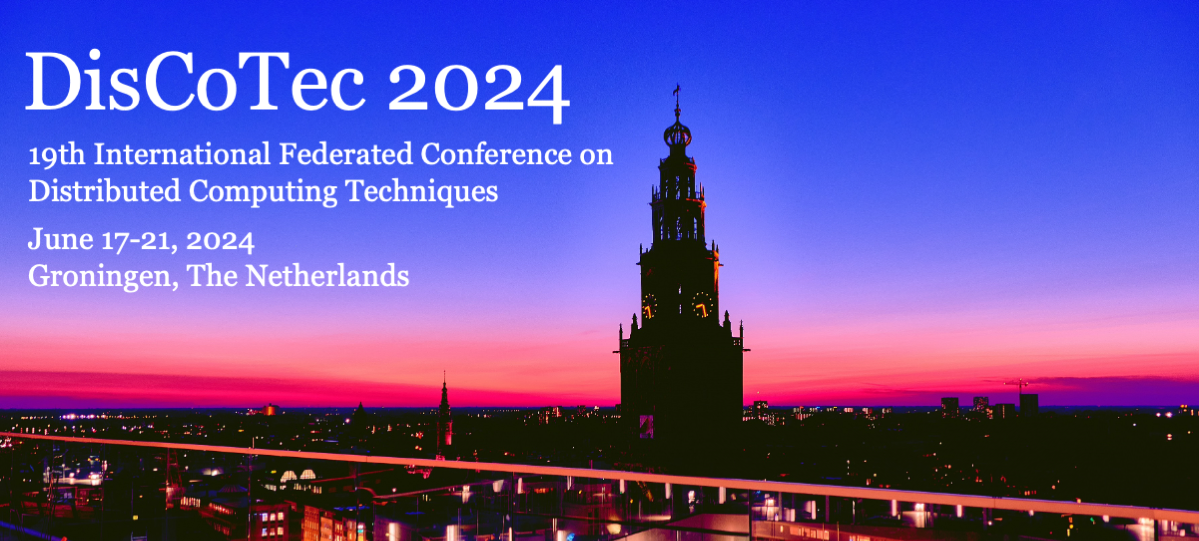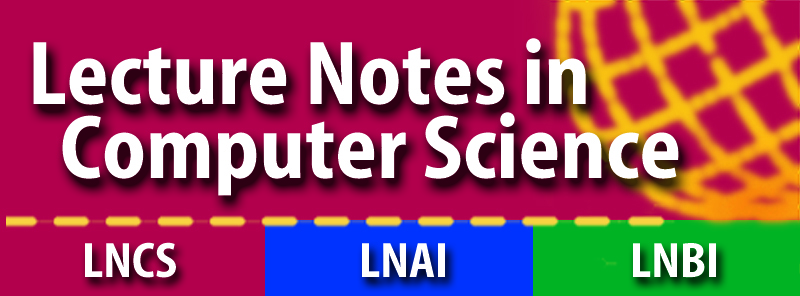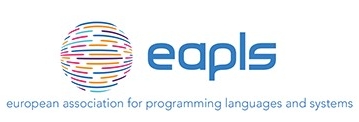 Photo by Robin Mathlener on Unsplash
Photo by Robin Mathlener on Unsplash
DAIS 2024 - 24th International Conference on Distributed Applications and Interoperable Systems
DAIS 2024 is one of the three conferences of DisCoTec 2024.
Scope
The DAIS conference series addresses all practical and conceptual aspects of distributed applications, including their design, modeling, implementation and operation, the supporting middleware, appropriate software engineering methodologies and tools, as well as experimental studies and applications. Submissions will be judged on their originality, significance, clarity, relevance, and technical correctness.
The topics of interest to the conference include, but are not limited to:
Novel and innovative distributed applications and systems, particularly in the areas of
- middleware,
- cloud, edge and fog computing,
- big data processing,
- distributed embedded machine learning (TinyML),
- streaming and complex event processing,
- distributed social networking,
- IoT and cyber-physical systems,
- mobile computing,
- advanced networking (SDN/NFV),
- micro-services and service-oriented computing,
- peer-to-peer systems, and
- data center and internet-scale systems.
Novel architectures and mechanisms, particularly in the areas of
- publish/subscribe systems,
- epidemic protocols,
- language-based approaches,
- virtualization and resource allocation,
- distributed storage,
- trusted execution environments,
- blockchains, cryptocurrencies and smart contracts, and
- distributed consensus mechanisms.
System issues and design goals, including
- interoperability and adaptation,
- self-* properties (e.g., self-organization, self-management,…),
- security and practical applications of cryptography,
- trust and privacy,
- cooperation incentives and fairness,
- fault-tolerance and dependability,
- scalability and elasticity, and
- tail-performance and energy-efficiency.
Keynote speakers
- Marieke Huisman (University of Twente, NL)
- Laura Kovács (Vienna University of Technology, AT)
- Paulo Veríssimo (KAUST, SA)
DAIS Accepted Papers
Regular papers
- Rémy Raes, Olivier Ruas, Adrien Luxey and Romain Rouvoy. Compact Storage of Data Streams in Mobile Devices.
- Enrico Tedeschi, Øyvind Nohr, Håvard Dafenborg and Dag Johansen. Mining Profitability in Bitcoin: Calculations of User-Miner Equilibria and Cost of Mining.
- Claudia-Lavinia Ignat, Victorien Elvinger and Habibatou Ba. A CRDT for Replicated Relational Databases with Integrity Constraints.
- Luís Alves and Luís Veiga. Stream Economics: Resource Efficiency in Streams with Task Over-Allocation and Load Shedding.
Short papers
- Amir Javadpour, Forough Ja’Fari and Tarik Taleb. Encryption as a Service: A Review of Architectures and Taxonomies.
Submission dates
- Abstract submission:
February 2, 2024February 16, 2024 - Paper submission:
February 9, 2024February 23, 2024 - Paper notification:
March 29, 2024April 5, 2024 - Camera-ready: April 28, 2024
- DisCoTec conference: June 17-21, 2024
Deadlines expire at 23:59 anywhere on earth on the dates displayed above.
Submission and Publication
All papers must be original, unpublished, and not submitted for publication elsewhere. DAIS 2024 offers three submission tracks:
- Full research papers in no more than 15 pages + 2 pages references.
- Full practical experience reports, including experimental and evaluation studies, case studies, and practice reports in no more than 15 pages + 2 pages references.
- Work-in-progress papers, describing ongoing work and interim results, in no more than 6 pages + 2 pages references.
Contributions should be submitted electronically as PDF, using the Springer LNCS style to the conference submission website. Each paper will undergo a thorough process of peer reviews by the Program Committee. Reviewing is single-blind: author name(s) should appear.
Proceedings
All papers accepted in any of the conference tracks will be included in the conference proceedings, which will be published by Springer-Verlag in LNCS-IFIP volumes.

Artefact Submission
To improve the reproducibility of results and to increase the visibility of prototypes and tools produced by our community, authors of accepted papers (full papers, experience reports, WiP papers) will be invited to submit publicly available artefacts associated with their paper for evaluation. Based on the result of the evaluation, the paper may be awarded with badges. Artefact submission is optional and the result of the artefact evaluation will not alter the paper’s acceptance decision. Detailed guidelines for the preparation and submission of the artefacts will be made available to authors.
Artefacts
Following ACM’s definition, an artefact is “a digital object that was either created by the authors to be used as part of the study or generated by the experiment itself. For example, artifacts can be software systems, scripts used to run experiments, input datasets, raw data collected in the experiment, or scripts used to analyze results”.
To improve and reward reproducibility and to give more visibility and credit to the effort of tool developers in the DAIS community, authors of submitted papers are invited to submit publicly available artefacts (using permanent repositories such as Software Heritage, Zenodo, etc.), which will be associated with their paper for evaluation. Based on the result of the artefact evaluation, one or more badges may be applied to a paper. Specifically, DAIS uses the EAPLS badging scheme), which in its own turn is based on and consistent with the ACM initiative.
Artefact submission is mandatory for tool papers and the result of the artefact evaluation will be considered in the tool paper’s acceptance decision. Instead, artefact submission is optional for all the other paper categories and the result of the artefact evaluation will not affect the paper’s acceptance decision but may affect the best paper selection.
Dates (AoE):
- Artefact submission:
February 29, 2024March 15, 2024 - Kick-the-tires phase:
- Problem reports from reviewers:
8 March, 2024March 22 2024 - Authors’ response to reviewers:
15 March, 2024March 29 2024
- Problem reports from reviewers:
- Artefact notification:
March 29, 2024April 5, 2024
Detailed information on artefact submission and evaluation is available here.
Submission link
https://easychair.org/conferences/?conf=dais2024
Program committee chairs
- Rolando Martins, University of Porto, Portugal
- Mennan Selimi, South East European University, North Macedonia
Program committee
- Evangelia Kalyvianaki, University of Cambridge, UK
- Rüdiger Kapitza, Friedrich-Alexander-Universität Erlangen-Nürnberg, Germany
- Valerio Schiavoni, University of Neuchâtel, Switzerland
- Carlos Molina Jimenez, University of Cambridge, UK
- David Bermbach, TU Berlin, Germany
- Marco Zennaro, ICTP, Italy
- Mirela Riveni, University of Groningen, Netherlands
- Etienne Riviére, Ecole Polytechnique de Louvain, Belgium
- Felix Freitag, Universitat Politècnica de Catalunya (UPC), Spain
- Hans P. Reiser, Reykjavík University, Iceland
- Håvard Dagenborg, UiT The Arctic University of Norway, Norway
- João Leitão, Universidade Nova de Lisboa, Portugal
- Spyros Voulgaris, Athens University of Economics and Business, Greece
- Kai Rannenberg, Goethe University, Germany
- Zhiyuan Chen, University of Maryland, Baltimore County, USA
- Pradeeban Kathiravelu, University Alaska Anchorage, USA
- Paolo Bellavista, University of Bologna, Italy
- Luís Veiga, INESC-ID, Universidade de Lisboa, Portugal
- Davide Frey, INRIA, France
- Odorico Machado Mendizabal, UFSC, Brasil
- Guillaume Pierre, IRISA, France
- Roberto Yus, University of Maryland, Baltimore County, USA
- Pierre-Louis Aublin, IIJ Research Laboratory, Japan
- Ali Shoker, King Abdullah University of Science and Technology, Saudi Arabia
- Fred Buining, HIRO-MicroDataCenters, Netherlands
Artefact Evaluation Committee
- João Soares (chair), University of Porto, Portugal
- Nuhi Besimi (chair), South East European University, North Macedonia
- Giovanni Farina, Sapienza University of Rome, Italy
- Nuno Neto, University of Porto, Portugal
- Christian Berger, University of Passau, Germany
- Lamir Shkurti, South East European University, North Macedonia
- Bijun Li, Hainan Normal University, China
Steering committee
- Lydia Y. Chen, TU Delft, Netherlands
- Frank Eliassen, University of Oslo, Norway
- Rüdiger Kapitza, Friedrich-Alexander-Universität Erlangen-Nürnberg, Germany
- Rui Oliveira, University of Minho / INESC TEC, Portugal
- Hans P. Reiser, Reykjavik University, Iceland
- Laura Ricci, University of Pisa, Italy
- Silvia Bonomi, Università degli Studi di Roma “La Sapienza”, Italy
- Etienne Riviére, Ecole Polytechnique de Louvain, Belgium
- Jose Pereira, University of Minho / INESC TEC, Portugal
- Luís Veiga, INESC-ID, Universidade de Lisboa, Portugal – Chair

